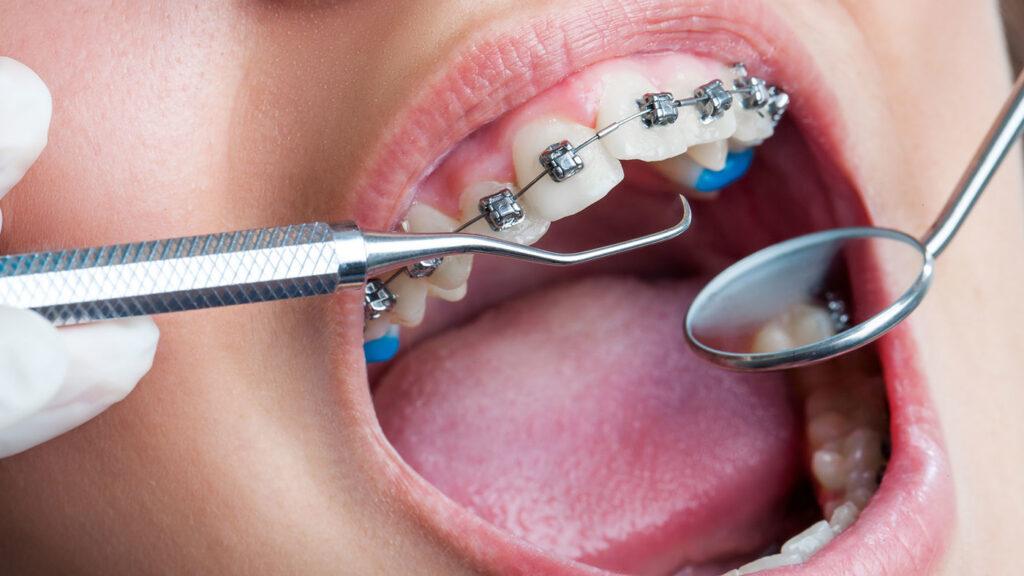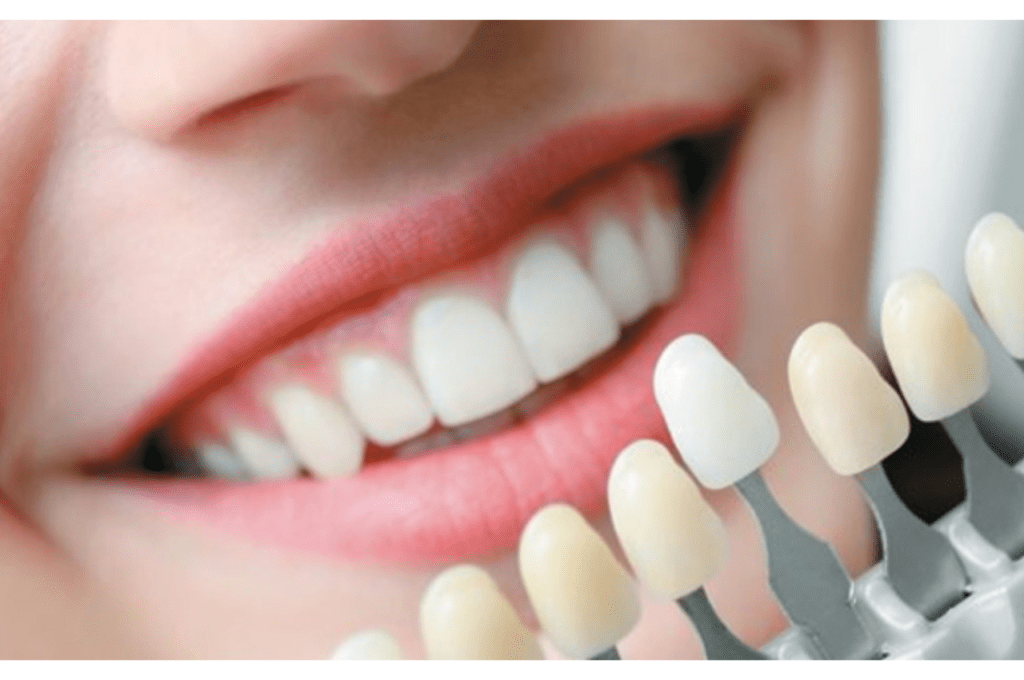We all understand how crucial it is to take care of our dental health. Our teeth, gums, and mouth play a vital role in our overall well-being. That’s why it’s essential to grasp the significance of maintaining good oral hygiene.
The importance of dental health cannot be overstated. A healthy mouth is essential for overall well-being, as it can affect everything from your ability to eat and speak properly to your self-esteem and overall health. That’s why it’s important to visit your dentist regularly for checkups and cleanings, and to follow good oral hygiene practices at home.
Grin Dentistry is a leading dental practice that offers a wide range of services to help you achieve and maintain optimal dental health. Their experienced and compassionate team is dedicated to providing you with the highest quality care in a comfortable and welcoming environment.
From routine checkups and cleanings to more complex procedures such as orthodontics and restorative dentistry, Grin Dentistry has everything you need to keep your smile healthy and bright. They also offer a variety of cosmetic dentistry services to help you achieve your dream smile.
Let’s explore the importance of dental health and its impact on our overall well-being.
TLDR
- Dental health is closely connected to overall health.
- Poor oral health can contribute to chronic diseases like heart disease and diabetes.
- Oral health can impact mental health, including depression and anxiety.
- Maintaining good oral hygiene prevents oral health problems.
What is the Importance of Dental Health
So, why is dental health important?
Well, dental health is closely linked to our overall health. Taking care of our teeth and gums can help prevent oral health problems, such as tooth decay and gum disease, which can have a negative impact on our overall well-being.

Dental Health and Overall Health
When it comes to dental health, it’s important to recognize the connection between oral health and overall health. Poor oral health can contribute to chronic diseases such as heart disease and diabetes, as well as mental health issues like depression and anxiety.
Additionally, maintaining good dental health can greatly improve one’s quality of life, allowing for better chewing, speaking, and smiling.
Oral Health and Chronic Diseases
In relation to oral health and chronic diseases, the importance of dental health lies in its impact on our overall well-being and quality of life. Maintaining good oral health can help prevent various chronic diseases and conditions.
Here are three key connections between oral health and chronic diseases:
- Oral health and heart disease: Poor oral hygiene can contribute to the development of heart disease.
- Oral health and diabetes: Gum disease and diabetes have a bidirectional relationship, where one can worsen the other.
- Oral health and respiratory health: Oral infections can increase the risk of respiratory infections and worsen existing respiratory conditions.
Oral Health and Mental Health
Maintaining good oral health is essential for our overall well-being, as it has a significant impact on our mental health.
The connection between oral health and mental well-being is undeniable. Stress, for example, can negatively affect oral health, leading to issues like gum disease and tooth decay.
On the other hand, practicing proper oral hygiene, including regular dental exams, can have numerous benefits for our mental well-being, such as boosting self-esteem and improving overall quality of life.
Nutrition also plays a crucial role in oral health, as a healthy diet can help prevent oral health problems. Additionally, medications can have an impact on oral health, so it’s important to discuss any potential side effects with your dentist.
Furthermore, oral health is linked to systemic diseases, such as diabetes and heart disease. Taking care of our teeth and gums can have a positive impact on our mental health, as it contributes to our self-esteem and overall sense of well-being.
Fluoride is another important aspect of dental health, as it helps prevent tooth decay and strengthens tooth enamel.
Oral Health and Quality of Life
Our oral health significantly impacts our overall quality of life. Taking care of our teeth and gums through proper oral hygiene practices and using dental hygiene products can greatly improve our well-being.
Dental health education plays a crucial role in teaching us how to maintain good oral health habits. As we age, dental health becomes even more important, as it can affect our overall health and well-being.
It’s also essential to prioritize dental health during pregnancy, for children, and to consider the role of nutrition, systemic diseases, medication, and social interactions in maintaining a healthy smile.
Prevention is Key
Prevention is key when it comes to maintaining good dental health. By practicing regular brushing and flossing, scheduling regular dental checkups and cleanings, and adopting a healthy diet, we can greatly reduce the risk of tooth decay, gum disease, and other oral health problems.
Additionally, avoiding smoking and excessive alcohol consumption can further contribute to the overall well-being of our teeth and gums.
Brushing and Flossing
Regular oral hygiene practices are vital for ensuring optimal dental health and preventing oral health issues.
To maintain good dental hygiene, it’s important to follow proper techniques for brushing and flossing. This includes using a soft-bristled toothbrush and fluoride toothpaste to effectively remove plaque and bacteria.
Flossing daily helps to clean between the teeth and along the gumline, promoting gum health and preventing tooth decay.
Incorporating these habits into your dental routine is crucial for maintaining oral hygiene and preventing dental issues.

Regular Dental Checkups and Cleanings
Scheduling regular dental checkups and cleanings is essential for maintaining optimal dental health.
Regular checkups allow us to detect dental problems early, preventing tooth decay and maintaining healthy gums.
Professional cleanings provide benefits such as plaque and tartar removal, improving overall oral hygiene.
Additionally, checkups include oral cancer screenings and dental X rays, ensuring personalized dental care.
Healthy Diet
One important aspect of maintaining good dental health is adopting a balanced and nutritious diet. This has a significant nutritional impact on our overall oral health. To ensure healthy teeth and gums, it’s important to limit sugar intake and strive for a balanced diet.
Consuming dental friendly foods and getting enough vitamins is crucial. Hydration plays a role in oral health as well. It’s important to be aware of the impact of processed foods, practice healthy snacking, understand the role of antioxidants, and be mindful of the impact of alcohol on oral health.
Avoiding Smoking and Excessive Alcohol Consumption
To maintain optimal dental health, it’s imperative that we prioritize avoiding smoking and excessive alcohol consumption, as these habits can significantly impact our overall oral well-being.
Avoiding tobacco and alcohol risks is crucial for maintaining good oral hygiene. The effects of smoking and excessive drinking can lead to numerous oral health risks, including gum disease.
Frequently Asked Questions
How Does Poor Dental Health Affect My Overall Health?
Poor dental health can negatively impact our overall health. It’s linked to heart disease, mental well-being, and diabetes. Regular check-ups, oral hygiene tips, and proper nutrition are vital. Fluoride, dental care during pregnancy, and avoiding smoking all contribute to maintaining good dental health.
Can Dental Health Problems Be Passed Down Genetically?
Genetic factors can play a role in dental health. Inherited dental conditions and oral hygiene habits can contribute to genetic dental issues. Understanding our family history and taking preventive measures can help mitigate genetic risk factors in dental care.
Are There Any Natural Remedies or Home Remedies for Improving Dental Health?
We’ve found some natural remedies for improving dental health, such as oil pulling, herbal mouthwash, tongue scraping, saltwater rinse, baking soda toothpaste, aloe vera for gum health, tea tree oil for dental hygiene, hydrogen peroxide mouthwash, clove oil for tooth pain, and coconut oil for teeth whitening.
Can Dental Health Problems Affect My Ability to Eat and Speak Properly?
Yes, dental health problems can definitely affect our ability to eat and speak properly. Oral health impacts digestion, causes speech difficulties, and chewing problems. It also affects pronunciation, swallowing, articulation, food choices, taste perception, and maintaining a balanced diet.
How Often Should I Replace My Toothbrush and Why Is It Important?
We replace our toothbrush every three months to maintain good dental hygiene. Regular toothbrush replacement helps prevent tooth decay, gum disease, and dental plaque buildup. It’s an important part of our dental care routine for maintaining optimal oral health.













